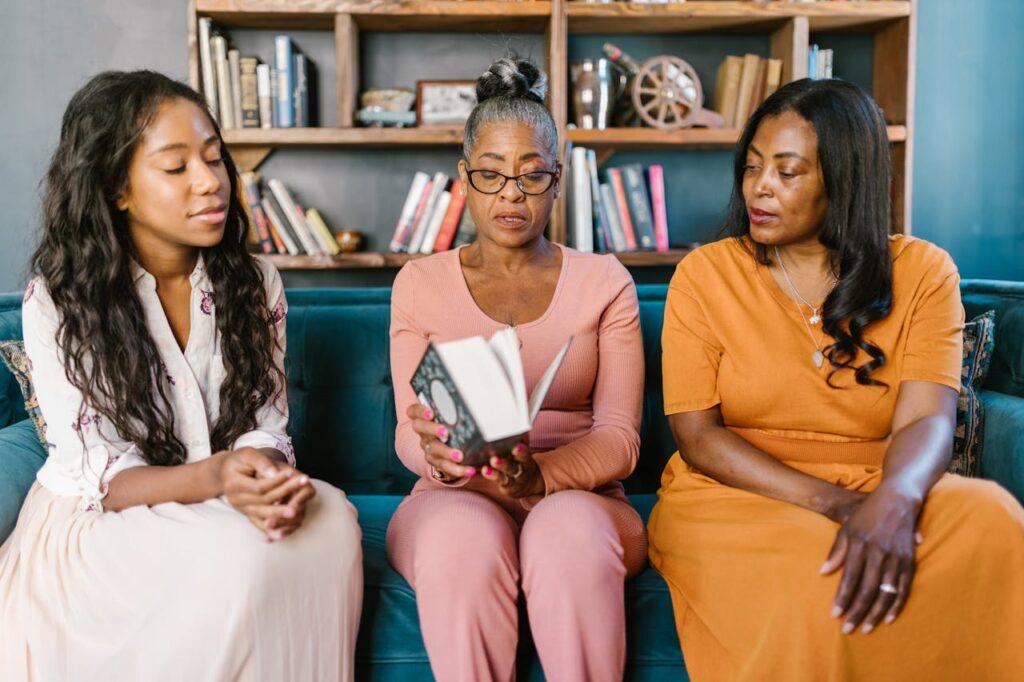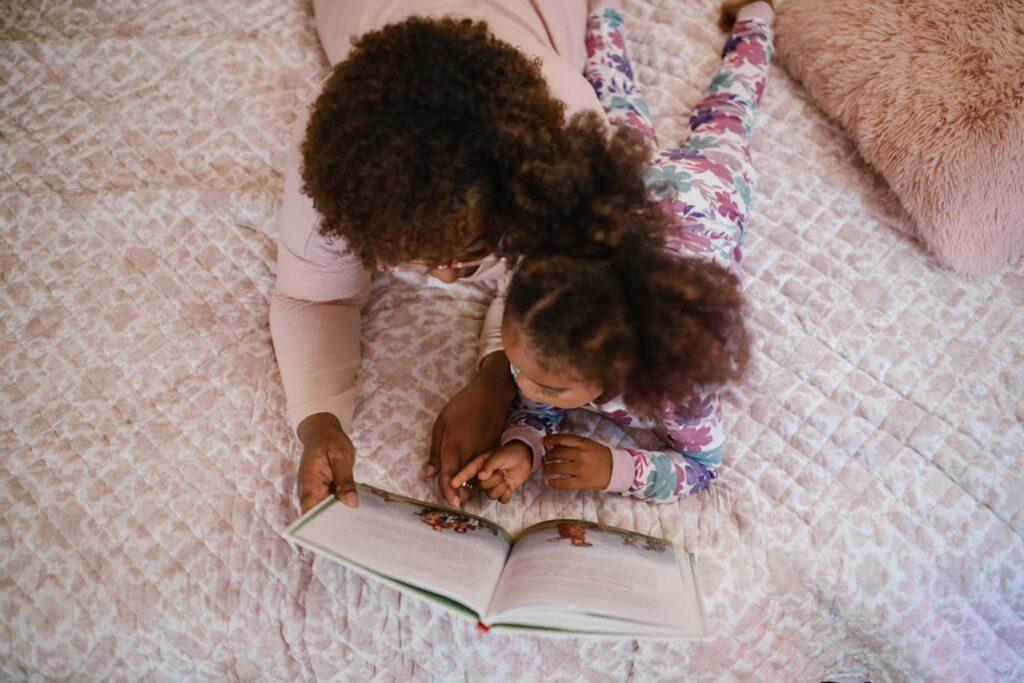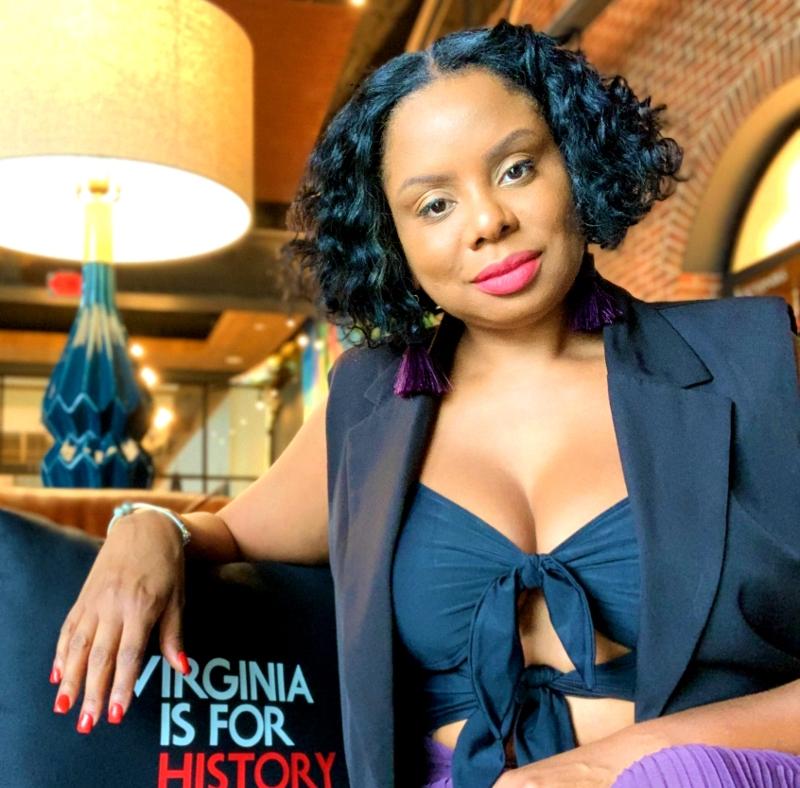Black Women’s Mental Health: Honoring Bebe Moore Campbell’s Advocacy With A Reading List For Healing

The Bebe Moore Campbell legacy spans generations, from Black Gen X moms in the late ’80s and early ’90s, to their millennial daughters. The moms bought every fiction book she wrote and the daughters fell in love with her talented teenaged daughter on TV. (My own mother was part of that fan base and I was among the daughters religiously tuned in.)
But Bebe wasn’t just an award-winning author, essayist, educator, and journalist — she was also a mother deeply impacted by the mental health crisis. In 2008, the U.S. House of Representatives officially designated July as Bebe Moore Campbell National Minority Mental Health Awareness Month, honoring the legacy of a woman who fought to bring visibility, empathy, and resources to minority communities grappling with mental health.
Turning Personal Challenges Into Mental Health Advocacy
Bebe’s daughter, actress Maia Campbell, rose to fame in the 1990s, first appearing in Poetic Justice at just 16, and later starring in hit shows like South Central, Moesha, Beverly Hills, 90210, and most notably In The House alongside Debbie Allen and LL Cool J. Maia’s career was ultimately derailed due to challenges managing bipolar disorder, with news sources publicizing stories of substance abuse and multiple arrests.
Bebe fought tirelessly to support her daughter and publicly shared her experiencesencountering a system plagued by stigma, racial bias, and inadequate care. Her personal pain became a public mission. She founded NAMI-Inglewood, a local chapter of the National Alliance on Mental Illness, to provide a safe and culturally competent space for Black families to speak openly about mental health. She also traveled to Washington, D.C., to advocate for national attention and systemic change.
As a writer, Bebe’s books often tackled themes of trauma (Your Blues Ain’t Like Mine), generational wounds (Singing In the Comeback Choir), and the complexities of families coping with mental illness (72 Hour Hold). Her novels and essays—gritty, real, and compassionate—pushed these conversations forward among Black readers and the global community—long before they were mainstream. She believed that healing wasn’t just individual—it was collective, community-rooted, and deeply urgent.
Today, her legacy lives on—not just through her writing, but in the ongoing push for mental health equity. In her honor, take time this month to prioritize rest, healing, and education.
Here are a few books on self-care, rest, and emotional well-being to add to your reading list this July and beyond.

Sisterhood Heals by Dr. Joy Harden Bradford
Psychologist Dr. Joy Harden Bradford, licensed psychologist and founder of Therapy For Black Girls explores how Black women can build and repair transformative friendships. Drawing from group therapy principles and personal experience, she helps readers understand their relational patterns, heal past wounds, and cultivate deeper sisterhoods rooted in mental wellness, authenticity, and collective empowerment.
The Deepest Well by Dr. Nadine Burke Harris
Dr. Nadine Burke Harris, a pediatrician who once served as California’s first surgeon general, shares how childhood adversity impacts long-term health and outlines groundbreaking strategies to break the cycle. This essential book combines scientific insight and personal stories, offering hope and healing for people affected by trauma, stress, and the invisible wounds of early life experiences.
Weightless: Making Space for My Resilient Body and Soul by Evette Dionne
Evette Dionne chronicles her journey as a fat Black woman navigating love, health, pop culture, and self-acceptance. With fierce honesty and compassion, she challenges fatphobia, medical bias, and societal expectations while celebrating the radical act of loving oneself despite a world intent on shame and erasure.
On Thriving: Harnessing Joy Through Life’s Great Labors by Brandi Sellerz-Jackson
Doula and storyteller Brandi Sellerz-Jackson invites readers to reflect on life’s emotional “labors”—grief, mental health, relationships—and the tools needed to thrive within them. Through honesty, ritual, and resilience, she offers a path to liberation, healing, and joy that starts with presence and radical self-compassion.
The Body Is Not an Apology: The Power of Radical Self-Love by Sonya Renee Taylor
Sonya Renee Taylor urges us to dismantle body shame and embrace radical self-love. With insight and power, she exposes how systems of oppression manipulate body image and challenges us to heal collectively. This transformative guide empowers readers to live unapologetically in their bodies—and to help others do the same.
We Will Rest!: The Art of Escape by Tricia Hersey
Tricia Hersey, founder of The Nap Ministry, reclaims rest as a sacred, revolutionary act. Blending art, poetry, and protest, she encourages us to disrupt grind culture and embrace rest as resistance. This powerful offering is a balm for weary souls and a call to collective liberation through slowing down.
Fervent: A Woman’s Battle Plan to Serious, Specific and Strategic Prayer by Priscilla Shirer
In this empowering guide, Priscilla Shirer helps women craft personal, focused prayers for life’s biggest challenges. Tackling identity, family, fear, temptation, and more, she offers practical strategies and tear-out sheets for spiritual warfare, self-reflection, and victorious living through intentional prayer and connection with God.
The Embodied Healing Workbook by Catherine Cook-Cottone
Trauma therapist Dr. Catherine Cook-Cottone presents a hands-on workbook filled with over 100 practices to support trauma recovery. With meditations, body-based exercises, and reflection tools, readers learn to reconnect with their bodies, process trauma with compassion, and build inner resources for lasting emotional and physical healing.
Grief Is Love: Living with Loss by Marisa Renee Lee

Marisa Renee Lee challenges the myth of “moving on” from grief. Through personal reflection and compassionate guidance, she shows how to honor loss by continuing to love, feel, and live fully. This book is a heartfelt roadmap for living alongside grief without shame, pressure, or artificial timelines.
Willow Weep for Me: A Black Woman’s Journey Through Depression by Meri Nana-Ama Danquah
In this raw and lyrical memoir, Ghanaian-American journalist, editor and speaker Meri Nana-Ama Danquah recounts her struggle with depression. Defying societal silence and stereotypes, she shares an intimate, courageous portrait of mental illness, healing, and identity—offering hope and understanding to those who suffer in the shadows.
Activist Dior Vargas gathers powerful mental health stories from people of color across the U.S. Through interviews and portraits, this bilingual photo book explores identity, stigma, healing, and resilience. It offers much-needed representation, cultural insight, and affirmation for communities too often left out of mental health conversations.
Soothe Your Nerves by Dr. Angela Neal-Barnett
Dr. Angela Neal-Barnett offers a comprehensive, culturally informed guide to understanding anxiety and panic in Black women. With case studies, coping techniques, and holistic strategies, she empowers readers to reclaim peace, prioritize healing, and navigate emotional challenges rooted in racism, trauma, and societal expectations with clarity and care.






